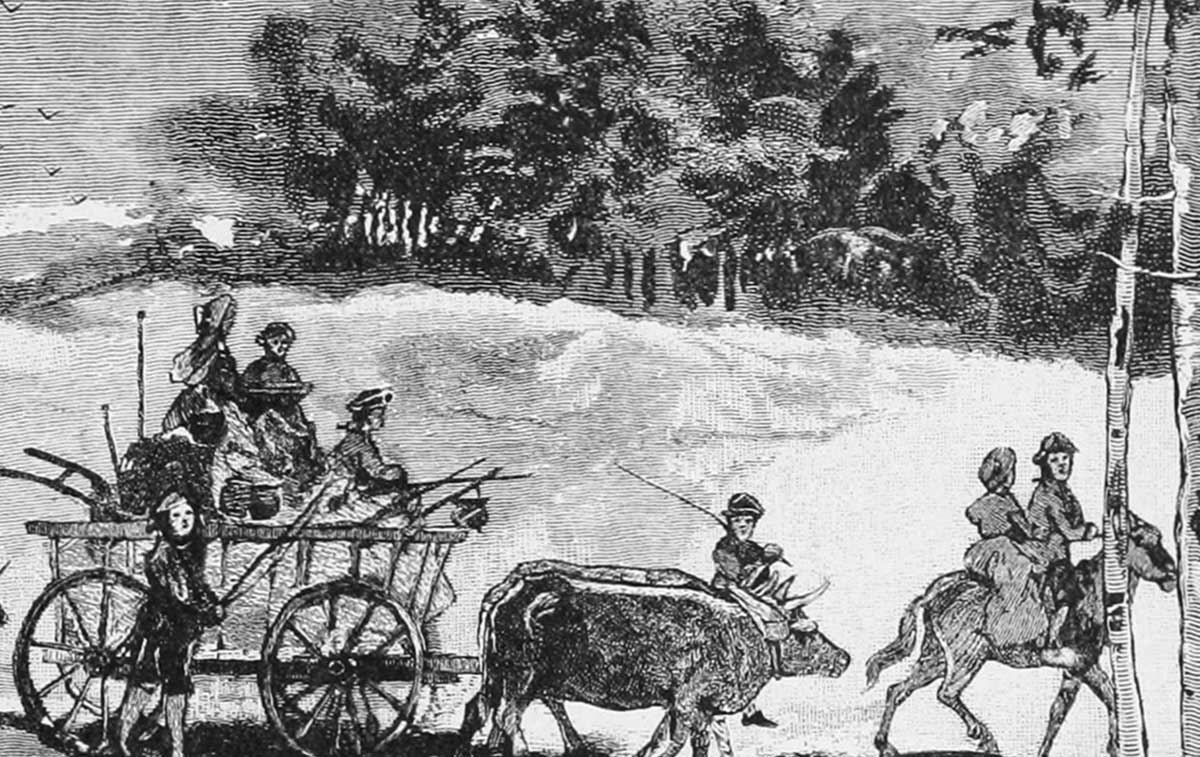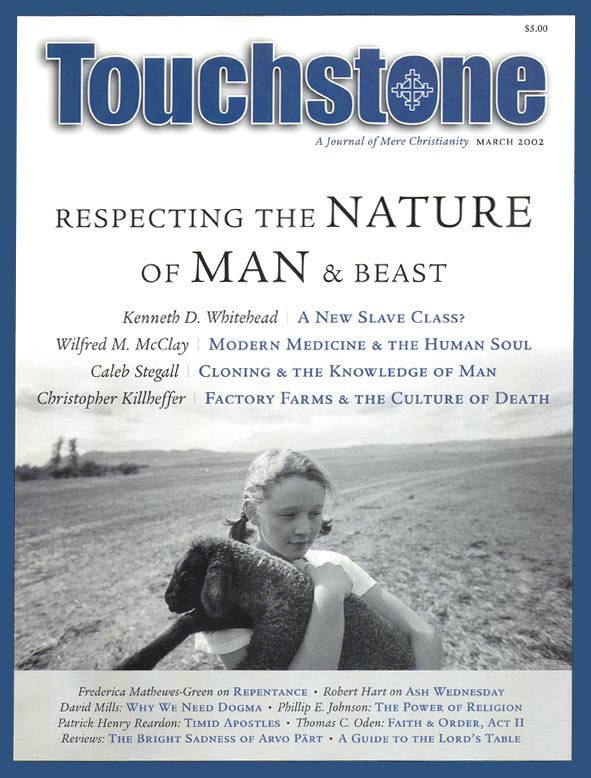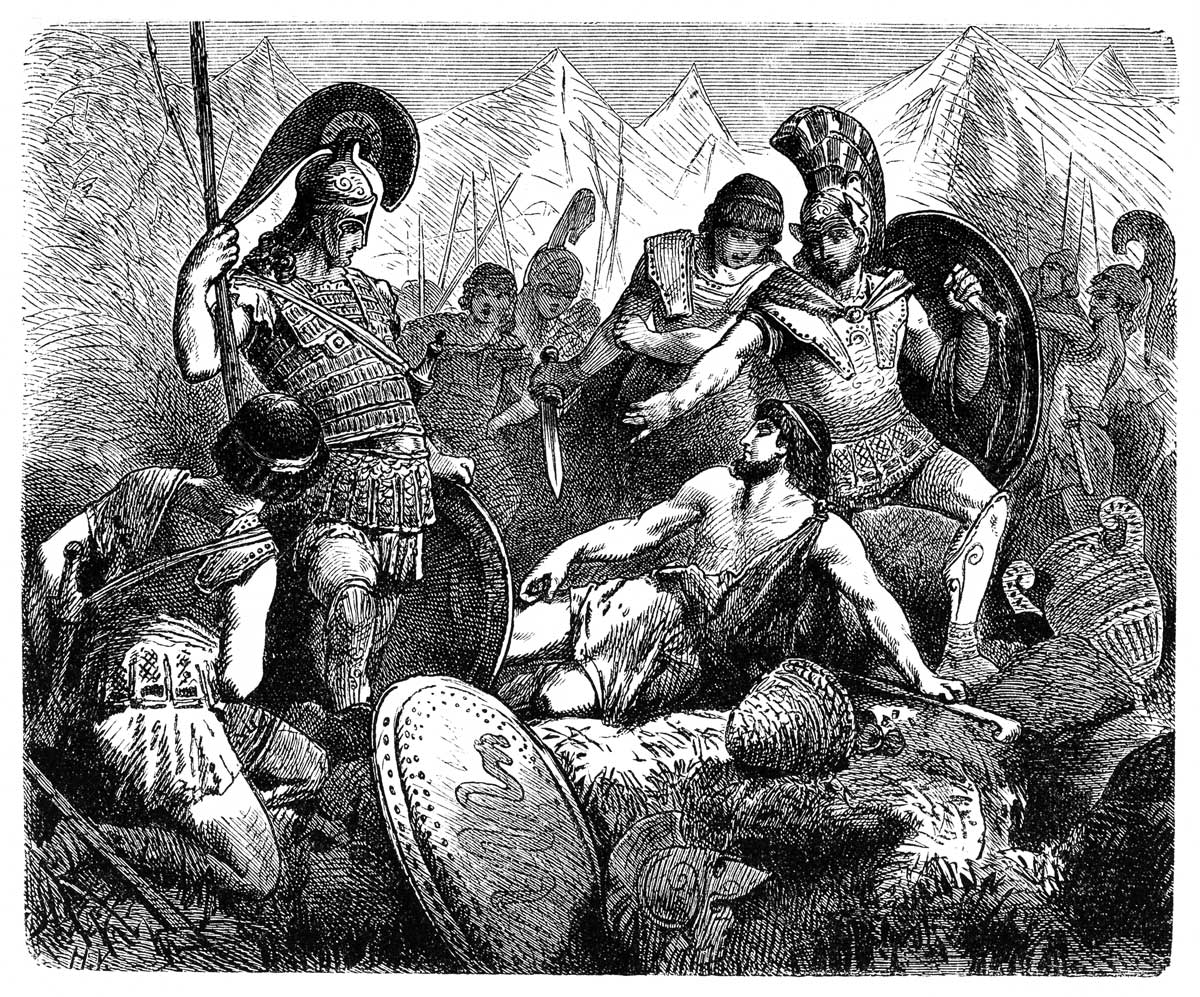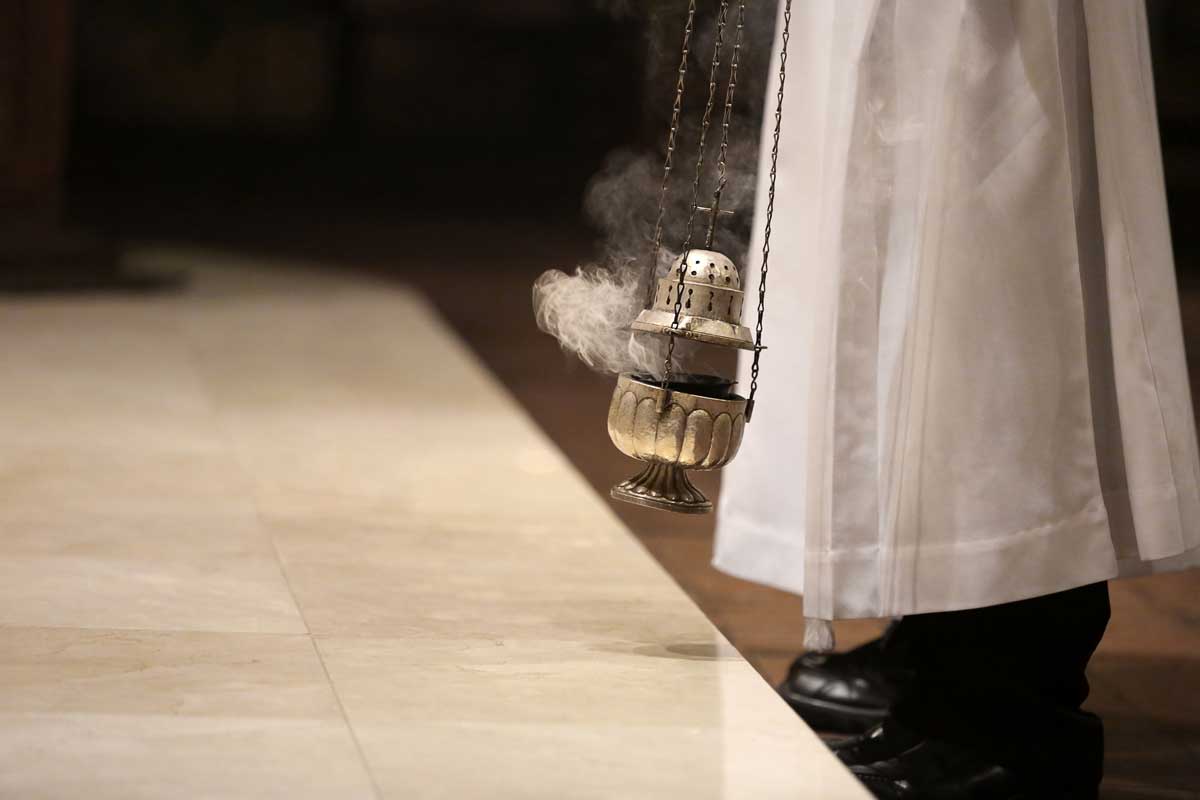Sliding Towards Slavery
The President’s Stem-Cell Decision Leaves Us on a Slippery Slope
by Kenneth D. Whitehead
We are now well into the still uncharted new world that has followed the terrorist attacks on the United States on September 11, 2001, yet the temptation remains great to put aside other concerns “for the duration,” as used to be said during World War II. The trouble is, as most informed observers agree, that the murky kind of war we are now engaged in is likely to be with us for some time; it does not seem likely that we will soon—or ever—simply return to what we once understood as “normal times.”
Precisely for this reason the temptation is also great to try to spare from criticism leaders who henceforth are obliged to make life-and-death decisions. Nevertheless, the fact that our national mobilization for today’s new kind of warfare is going to be indefinite means that we must also go on dealing with other issues that affect our lives as well—for some of them are life-and-death decisions, too.
A Pro-Life Line?
A case in point is the decision made by President George W. Bush on August 9, 2001, to allow federal funding for limited embryonic stem-cell research. This decision created quite a stir at the time, though it has been largely lost from sight since then. By deciding to provide federal support for research on already existing stem-cell lines derived from embryos created in in-vitro fertilization (IVF) clinics, while excluding the creation and destruction of additional embryos in order to extract their stem cells, the president appeared to believe that he was making a proper, responsible, and ethical decision. As he said in his nationally televised address announcing the decision—a speech that was widely praised by some pro-lifers since it represented the first time a president had ever articulated a pro-life position in a speech before a national audience—President Bush declared that it “allows us to explore the promise and potential of stem-cell research without crossing a fundamental moral line that would sanction or encourage further destruction of human embryos that have at least a potential for life.”
The president thus clearly recognized that a “fundamental moral line” exists and can be crossed, and he plainly said that he did not want to cross it. Whether or not he has crossed it is a question that must be looked at.
In a subsequent interview on ABC News, the president went further. He stated that he believes that human life begins at conception. “Even in a petri dish? Even with a few cells?” his interviewer asked him. “Yes, yes, I believe that,” the president replied. “And that influenced my decision, of course,” he added. Thus, according to him, embryos have more than just a “potential for life”; they are human life. And the president appeared to believe sincerely that his decision provided proper safeguards for respecting and protecting this nascent human life.
President Bush also stated clearly in his televised address that “even the most noble ends do not justify any means.” In a subsequent op-ed article in the New York Times defending and justifying his decision, he put the whole thing bluntly: “We do not end some lives for the medical benefit of others.”
Thus, the president came across on stem-cell research as a responsible, thoughtful, and moral man. He was widely praised for the moral seriousness with which he arrived at and announced his decision. Even many (but not all) pro-life voices and organizations seemed, at least initially, to go along with the president, pointing to his unwillingness to sacrifice additional embryos, while downplaying his willingness to make use of the products of embryos sacrificed earlier.
The American Catholic bishops seemed to be the most significant voices fairly consistently opposed to the president’s decision. In addition to a statement from the president of the bishops’ conference declaring that the president’s “compromise” solution was “morally unacceptable,” more than a dozen bishops issued their own statements, all of which found the president’s decision to be the wrong one (although, like many pro-life voices and organizations, some of the bishops were anxious to give the president some credit for his declared “pro-life” position against allowing the destruction of any further embryos).
Kenneth D. Whitehead is the 2004 recipient of the Blessed Frederic Ozanam Award for Catholic Social Action of the Society of Catholic Social Scientists (SCSS). He writes frequently on Catholic social and moral issues.
subscription options
Order
Print/Online Subscription

Get six issues (one year) of Touchstone PLUS full online access including pdf downloads for only $39.95. That's only $3.34 per month!
Order
Online Only
Subscription

Get a one-year full-access subscription to the Touchstone online archives for only $19.95. That's only $1.66 per month!
bulk subscriptions
Order Touchstone subscriptions in bulk and save $10 per sub! Each subscription includes 6 issues of Touchstone plus full online access to touchstonemag.com—including archives, videos, and pdf downloads of recent issues for only $29.95 each! Great for churches or study groups.
Transactions will be processed on a secure server.
more from the online archives

31.5—September/October 2018
Errands into the Moral Wilderness
Forms of Christian Family Witness & Renewal by Allan C. Carlson
calling all readers
Please Donate
"There are magazines worth reading but few worth saving . . . Touchstone is just such a magazine."
—Alice von Hildebrand
"Here we do not concede one square millimeter of territory to falsehood, folly, contemporary sentimentality, or fashion. We speak the truth, and let God be our judge. . . . Touchstone is the one committedly Christian conservative journal."
—Anthony Esolen, Touchstone senior editor








